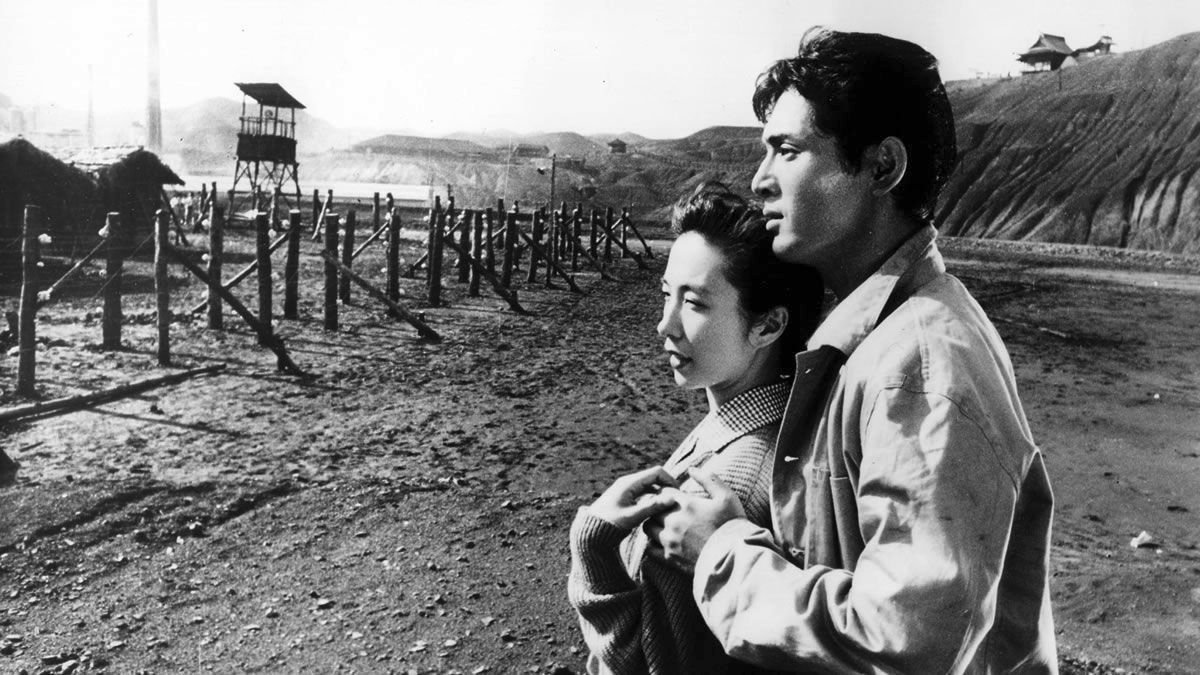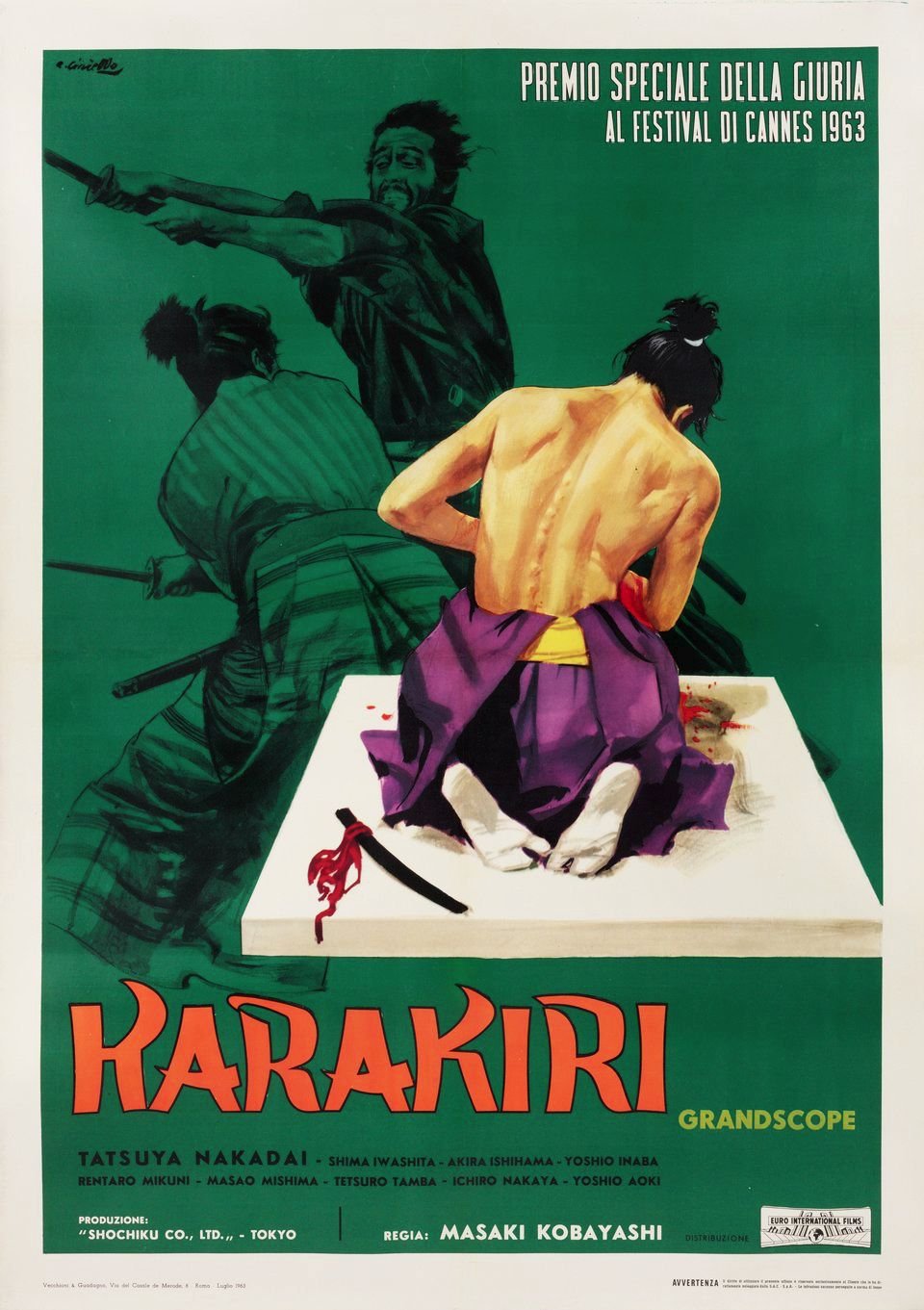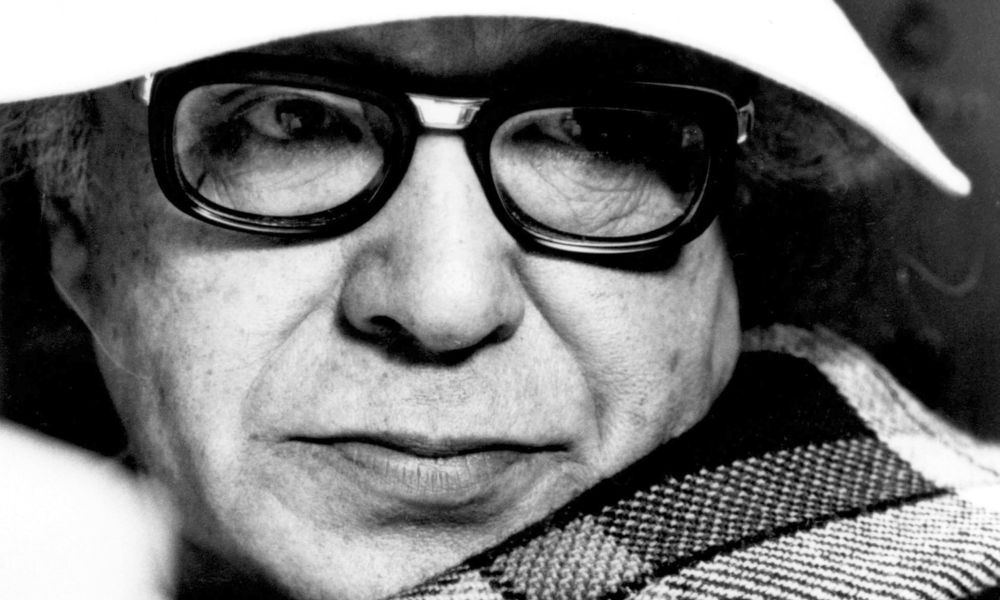"Though serious - even gloomy - in theme, Kobayashi's films are beautifully composed; his belief in the essential dignity of Man ensures that despite their intensity of situation they are thought-provoking rather than merely depressing." - The Illustrated Who's Who of Cinema, 1983
Masaki Kobayashi
Director / Screenwriter / Producer
(1916-1996) Born February 14, Hokkaido, Japan
(1916-1996) Born February 14, Hokkaido, Japan
Key Production Country: Japan
Key Genres: Drama, History, War, Epic, Historical Epic, War Epic, Action-Adventure, Period Film, Period Drama
Key Collaborators: Tatsuya Nakadai (Leading Actor), Yoshio Miyajima (Cinematographer), Michiyo Aratama (Leading Actress), Shigeru Wakatsuki (Producer), Keiichi Uraoka (Editor), Tôru Takemitsu (Composer), Zenzô Matsuyama (Screenwriter), Hisashi Sagara (Editor), Chûji Kinoshita (Composer), Kazue Hirataka (Production Designer), Masao Mishima (Character Actor), Shinobu Hashimoto (Screenwriter)
Key Genres: Drama, History, War, Epic, Historical Epic, War Epic, Action-Adventure, Period Film, Period Drama
Key Collaborators: Tatsuya Nakadai (Leading Actor), Yoshio Miyajima (Cinematographer), Michiyo Aratama (Leading Actress), Shigeru Wakatsuki (Producer), Keiichi Uraoka (Editor), Tôru Takemitsu (Composer), Zenzô Matsuyama (Screenwriter), Hisashi Sagara (Editor), Chûji Kinoshita (Composer), Kazue Hirataka (Production Designer), Masao Mishima (Character Actor), Shinobu Hashimoto (Screenwriter)
"Was assistant director from 1941 with Shochiku and then assistant to Kinoshita in 1946. His theme, which is essentially one of revolt against corruption and inhuman codes of conduct in both past and present, was most completely seen in his 10-hour anti-war trilogy [The Human Condition]… Later period films - Harakiri (1962), Kwaidan (194), Rebellion (1967) - confirmed his dynamic style coupled with a real flair for colour and widescreen compositions. His main weakness is a tendency to over-emphasize and he has never quite achieved the lyrical tenderness for which he often strives." - The International Encyclopedia of Film, 1972
"One of the most important filmmakers to emerge from Japan’s cinematic golden age, Masaki Kobayashi is remembered in great part today for his three-part epic The Human Condition (1959–61), but that is just one of the blistering films he made in a career dedicated to criticizing his country’s rigid social and political orders. He first found his voice—rebellious, angry, engaged—in the fifties, following his life-altering experiences as a soldier in World War II." - The Criterion Collection

The Human Condition I (1959)
"By Japanese standards, Kobayashi made few films, working slowly and painstakingly with careful attention to detail. From Seppuku (Harakiri) onwards, an increasing concern with formal beauty characterized his work, most notably in Kaidan (Kwaidan). This film, based on four of Lafcadio Hearn’s ghost stories, carried for once no social message, but developed a strikingly original use of color and exquisitely stylized visual composition. The crisis that overtook Japanese cinema in the late 1960s hit Kobayashi’s career especially hard. His uncompromising seriousness of purpose and the measured cadences of his style held little appeal for an industry geared increasingly to flashy exploitation movies." - Philip Kemp (International Dictionary of Films and Filmmakers, 2000)
"Kobayashi’s politically and ethically uncompromising and economically risk-taking attitude put him in conflict with the studios he worked with, Shōchiku and Toho: this might explain the fact that he made only 22 films. Moreover, his critical view of militarism in Japanese history and the entanglement of politics and the economy in Japanese society are topics that are not attractive to young Japanese people. However, they are still burning issues in Japan and in the modern world, more meaningful than ever before… Kobayashi was one of the finest depicters of Japanese society in the 1950s and 1960s, and explored the war and post-war situation by addressing controversial topics such as corruption, economic exploitation and the denial of war atrocities." - Andrea Grunert (Senses of Cinema, 2016)
"His films, beautifully composed for the wide screen, often put into relief a human suffering that results from rigid codes of honour and obedience, while remaining true to the traditions of the period film." - Ronald Bergan (A-Z of Movie Directors, 1983)
"All of my pictures… are concerned with resisting entrenched power… I suppose I’ve always challenged authority. This has been true of my own life, including my life in the military." - Masaki Kobayashi
Selected Filmography
{{row.titlelong}}
Masaki Kobayashi / Favourite Films
La Grande illusion (1937) Jean Renoir, On the Waterfront (1954) Elia Kazan, Thérèse Raquin (1953) Marcel Carné.
Source: Best Films of My Youth [Book] (1990)
La Grande illusion (1937) Jean Renoir, On the Waterfront (1954) Elia Kazan, Thérèse Raquin (1953) Marcel Carné.
Source: Best Films of My Youth [Book] (1990)
Masaki Kobayashi / Fan Club
David West, Ruy Guerra, Floyd Webb, Ciro Guerra, Nadin Mai, David Martín de los Santos, Josh DuShane, Mathieu Li-Goyette, D.A. Miller, Claude R. Blouin, Ariel Esteban Cayer, Emerson Goo.
David West, Ruy Guerra, Floyd Webb, Ciro Guerra, Nadin Mai, David Martín de los Santos, Josh DuShane, Mathieu Li-Goyette, D.A. Miller, Claude R. Blouin, Ariel Esteban Cayer, Emerson Goo.
"Fan Club"
These film critics/filmmakers have, on multiple occasions, selected this director’s work within film ballots/lists that they have submitted.
These film critics/filmmakers have, on multiple occasions, selected this director’s work within film ballots/lists that they have submitted.


